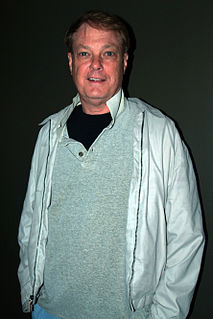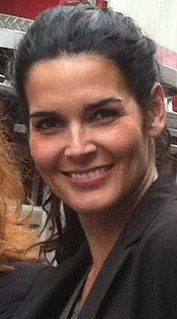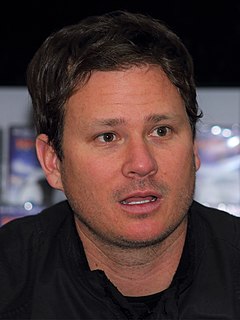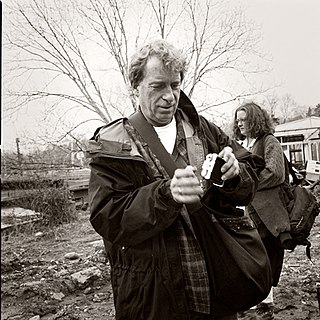A Quote by Daniel Clowes
Usually when I put together a book like this Death-Ray hardcover or that Ghost World special edition, then I have to reread it and see if there is anything I want to change or any re-coloring I want to do. That's when I'm faced with the actual work. When I'm working, I'm too close to it. I'm sort of inside, and I can't see it at all. So when I have that experience of rereading it years later, it's jarring.
Related Quotes
I like the idea of seeing a film that has the artist's hand in there,a film where you can see his strokes, you can see his working patterns. It's like going to a museum and seeing a Renoir drawing. You want to see their work and you want to see how they put it together. For me to see that in animation is really fresh, it's really exciting, it's really original.
I am a big fan of the electronic book. I hate to see the old bookstores close, but they have to reinvent themselves. I believe the First Edition bookstore will be the next thing. People will read electronically, then decide they want to own that book. The author will then be invited to the old bookstores to sign. I think books will always be with us, but they will fill a different need.
I see what I want of Love... I see horses making the meadow dance, fifty guitars sighing, and a swarm of bees suckling the wild berries, and I close my eyes until I see our shadow behind this dispossessed place... I see what I want of people: their desire to long for anything, their lateness in getting to work and their hurry to return to their folk... and their need to say: Good Morning.
Do not put statements in the negative form. And don't start sentences with a conjunction. If you reread your work, you will find on rereading that a great deal of repetition can be avoided by rereading and editing. Never use a long word when a diminutive one will do. Unqualified superlatives are the worst of all. De-accession euphemisms. If any word is improper at the end of a sentence, a linking verb is. Avoid trendy locutions that sound flaky. Last, but not least, avoid cliches like the plague.
Sure, kids want to read whatever is the hot book, and of course they want to read fantasy and any kind of speculative fiction, but they also like to read stories with kids that look just like them, that have the same problems as them. And I've noticed that what they particularly want to see is to see those characters prevail. So they don't want sanitized situations. They want stories to be raw, they want them to be gritty, but they also do want to see the hope at the end of the story.
I can't conceive of anything being more varied and rich and handsome than the planet Earth. And its crowning beauty is the natural world. I want to soak it up, to understand it as well as I can, and to absorb it. And then I'd like to put it together and express it in my paintings. This is the way I want to dedicate my work.
The copies of The Catcher In The Rye or To Kill A Mockingbird that I own look like they were printed yesterday, and there's not a nick, not a blur, there's not any fading on the jacket at all, because they were taken and protected. A limited edition, by nature, is limited, and also probably more protected because of that. I'd rather have a first trade edition than a special one of 25 that was made years later, even if it's signed by the author. The trade edition is the Holy Grail.
In 1978 I decided not to work with Man Ray as an act of self-discipline. I didn't want to rely on him. Man Ray hated not working, though. He would come into my studio, see me drawing or working on photographs, and just slump down at my feet with a big sigh. Fortunately for both of us the year ended. Polaroid had invented a new camera, the twenty-by-twenty-four, and I was invited to Cambridge, Mass., to experiment with it. Naturally, I took Man Ray and we were working again.
I want to see all the countries in the world and learn all the languages. I want to have thousands of friends and I want all my friends to be different. I want to play six instruments. I want to be the best in the world at two things. I want to be a great athlete and I want to be a great surgeon. I need to practice very hard every day. I need to sleep as little as possible. I need to read at least one major book every week. And I need to remember that my seventy years are going to go by too quickly.
I have no rules. For me, it's a full, full experience to make a movie. It takes a lot of time, and I want there to be a lot of stuff in it. You're looking for every shot in the movie to have resonance and want it to be something you can see a second time, and then I'd like it to be something you can see 10 years later, and it becomes a different movie, because you're a different person. So that means I want it to be deep, not in a pretentious way, but I guess I can say I am pretentious in that I pretend. I have aspirations that the movie should trigger off a lot of complex responses.
People don't want to pay for pitches. They want to see it. If you hear one more time, "Well, that's execution-dependent." Everything's execution-dependent! If there's something that's going to be a little bit more interesting than The Untitled Slinky Movie, then I think that writers that want to do interesting work and at the same time commercial work need to put it down on paper. So agents and producers that writers are working with are encouraging them to get it on paper because the studios like to see what they're buying rather than just imagine what it could be.







































